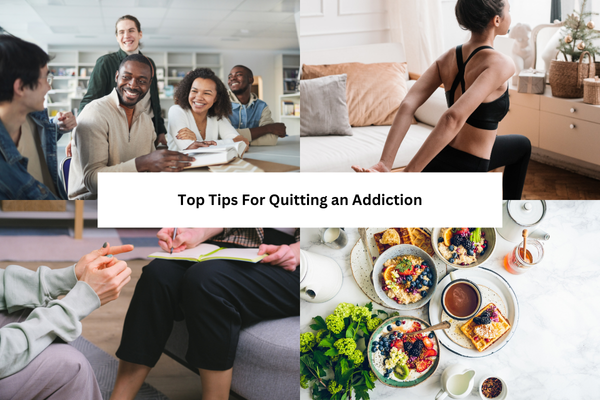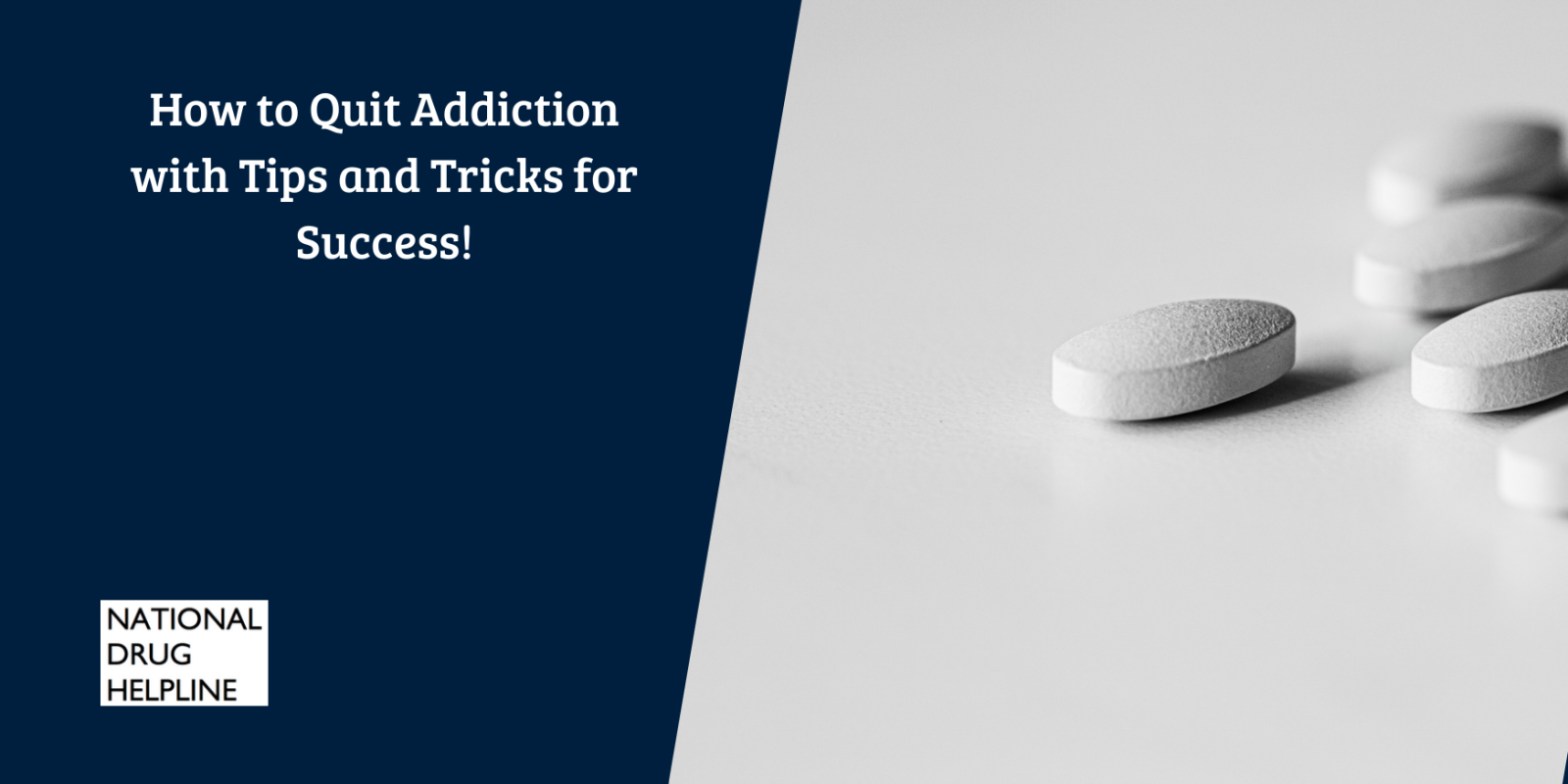If you are wondering how to quit addiction, you are already one step ahead of anyone else suffering. Trying to stop is one of the most courageous steps that you can take to improve your physical, mental, and social health. Regardless of the type, recovery is always possible. To this end, it is critical to know that there are countless supports to help people who want to know how to stop doing drugs. In this guide, we will help you learn how to quit addiction with valid resources, helpful tips, and scientific insights.
Understanding Addiction: Why It’s Hard to Quit
If you have tried to quit multiple times and failed, you should not blame yourself, as it is not because you lack willpower. Addiction is a complex, chronic condition that alters the brain’s reward system and memory circuits. Studies have shown that long-term addiction or repeated exposure to substances can lead to long-lasting changes in your brain’s structure and function.[1] This change is part of what makes it so difficult to stop.
However, this is not something that you need to fight alone. There are many support groups for addiction, therapies targeted to help those with addiction, and addiction recovery programs that address the physical and emotional components of addiction.
How Long Does It Take to Quit an Addiction?
When it comes to quitting addiction, there is no one-size-fits-all answer to how long it may take. Many factors can affect how long it takes to stop an addiction, such as the type, the time since you’ve been struggling, your mental health, and the treatment you choose.
According to research, it takes a minimum of 90 days of participation in any program to see results [2]. Therefore, most rehab programs use a three-month model. But, it is not a one-time fix, and quitting addiction requires lifelong commitment and ongoing support even after initial recovery.
How to Quit Any Addiction: Top Tips for Success

To maintain long-term success, it is best to follow a few key steps, such as:
1. Admit You Need Help
The first step is to acknowledge that you have a problem. Recovery can only begin when you recognize that you have an addiction issue that requires outside help and is something you can’t manage alone. This admission should be taken as a sign of strength and not weakness.
2. Build a Strong Support System
The next step would be to surround yourself with people who uplift and understand you. Your support system can be your family, friends, therapists, support groups for addiction, or an addiction hotline.
As per research, social support can dramatically increase the likelihood of successful recovery. You can begin by joining groups such as Alcoholics Anonymous (AA) or Narcotics Anonymous (NA) to speak with people who have been in your shoes. You can also look into local and online addiction recovery programs.
3. Seek Professional Help
Therapies for addiction can come in many modalities. Some of them include cognitive-behavioral therapy (CBT), motivational interviewing, and medication-assisted treatment. You should seek help from an experienced professional who can customize a plan based on your needs.
For instance, if you are suffering from alcohol dependency, there are alcohol addiction support services that can provide specialized treatments. Likewise, there are drug addiction resources designed to help people with substance use disorders.
4. Identify Triggers and Avoid Them
In this challenging journey, you may often find yourself relapsing. This relapse may be triggered by environmental cues, stress, and even specific people who can prompt cravings. You can identify these triggers, and a therapist can help you create strategies to handle high-risk situations.
5. Replace Bad Habits with Healthy Ones
One of the best ways to help quit an addiction is to find something healthy to replace it. You can try new hobbies, exercise, mindfulness meditation, and volunteering, which can help fill the void left by addiction. Studies have found that rewarding activities such as meditation can help rewire the brain and prevent relapse[3].
6. Be Patient and Forgiving with Yourself
Quitting an addiction is a marathon and not a sprint. Just because you relapsed doesn’t mean you have failed. You need to be compassionate towards yourself and more forgiving of your mistakes. Understand that relapses simply indicate that you may need to adjust your recovery plan.
Addiction Resources You Should Know About
Since you are here, you are already on a path to quitting addiction. Here are some helpful drug addiction resources and alcohol addiction support options:
- National Drug Helpline: 1-844-289-0879 is a valuable drug addiction hotline providing free and confidential referrals.
- DEA Recovery Resources also has highly effective tools for dealing with addiction.
- HelpGuide.org offers practical advice on how to recognize and deal with addiction.
Why Professional Support Matters
Addiction alters your brain function in a way that makes it extremely challenging to fight this battle alone. There are expert professional therapists and recovery programs that are tailored to help you quit your addiction and reclaim control of your life. Furthermore, many programs also offer personalized help designed for your needs.
Final Thoughts: You Can Do This
As you learn more about how to quit addiction, you will understand that it is not just about stopping a behavior. It is also about building a new life where addiction no longer controls you. When you are compassionate towards yourself, seek professional help, and have the right support system, overcoming addiction is possible.
Last updated: May 5, 2025
References
| ↑1 | Koob, George F., and Michel Le Moal. “Addiction and the brain antireward system.” Annu. Rev. Psychol. 59.1 (2008): 29-53. |
|---|---|
| ↑2 | Volkow, Nora D. Principles of drug addiction treatment: A research-based guide. DIANE Publishing, 2011. |
| ↑3 | Zgierska A, Rabago D, Chawla N, Kushner K, Koehler R, Marlatt A. Mindfulness meditation for substance use disorders: a systematic review. Subst Abus. 2009 Oct-Dec;30(4):266-94. |

